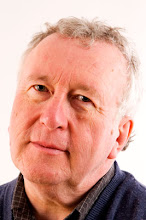"Life is A Dream" was written in 1635 by Pedro Calderon de la Barca and is acknowledged as one of the masterpieces of Spain's Golden Century, the creative 17th. Amongst other masterpieces of this period is my own personal classical favourite, Cervantes' 1605 masterpiece, Don Quixote . Calderon followed Lope de Vega as Philip IV's court dramatist and based his work upon the turbulent history of Spain in the 16th century. In 1568 Philip II of Armada infamy imprisoned his crazed son,Charles, in a tower.
This new version of "Life is a Dream" is by Helen Edmundson, who has done a lot of work with Shared Experience, and is currently working on a new play for the RSC. The language is poetic but sinewy. The psychology is deep and understanding. The premise that we can never be sure whether we are in a dream or in life is one that has occupied us all at one time or other. The storytelling is superb and totally satisfying.
The production directed by Jonathan Munby is based upon magnificent performances and a stagecraft that transforms the Donmar and transcends the space of one of the smallest but beloved theatres I know. Nothing is wasted and everything is used in the service of the story. The music by Dominic Haslam and Ansuman Biswas is stunning and underpins the whole production. The stage is stripped bare right down to the famous black back wall except for an enormous circular gold ringed chandelier with a central lantern in the form of a huge incense holder or inverted thurible.
It is difficult to single out one performance above the others as this is a stellar acting cast rather than an ensemble. However I must admit I had gone to see Dominic West on stage. I have been smitten by this English actor's work in The Wire, as a Baltimore policeman. After his performance as Segismundo, I am even more impressed by his performance as McNulty. We learn that Segismundo has been imprisoned by his father, King Basilio, a learned scholar and scientist, who believes his son is a harbinger of doom for the world and his kingdom. Powerful and muscular in stature and in voice,Dominic West engages the sympathy of the audience by the strength of his conviction and the wretchedness of his character's plight. In the smallness of the Donmar, we look right into his eyes and we share his sense of injustice and outrage.
The greatness of the piece though is that we do not have black and white characters with villains and heroes. In great soliloquies we learn about the motives of the king and the gaoler, Clotaldo. In the hands of Malcolm Storry and David Horovitch, these parts are rich, complex and beautifully rounded. Malcolm Storry is a beautifully rational actor with a beautiful voice and an expressive face. He also has the stage presence and charisma to not only match Dominic West but to impose himself above the other. David Horovitch manages to create a character who remains honourable in difficult circumstances and who earns our grudging respect.
Going as we do to matinees in term time, we encounter many audiences composed of young students (see "War Horse" review and the autograph hunters) and certainly the character of Clarion as played by Lloyd Hutchinson won the majority of them over. He was able to maintain the humour and the throwaway lines even in the poetic form dictated by the script (although it must be said that all the cast were good at doing that). The common man seeking to put some sense on what is happening in the world around him and somehow ending up right in the middle was safely in the hands of this warm and comic actor.
Calderon has also created two wonderful female characters in Esterella (Sharon Small) and Rosaura. When Segismundo encounters them and indeed womanhood for the first time he is mightily impressed and extols their virtues in almost "Brave New World" fashion. Both actresses are more than up to the task and once again we are given beautifully modulated and realised characters with no hint of stereotype. Having seen Kate Fleetwood recently as Lady M in the Scottish play to Patrick Stewart's murderous thane, I was impressed by the nuances she brought to Rosaura.
Rupert Evans as Astolfo played him as a three dimensional character rather than as a villain and thereby uses skilfully his own matinee idol looks in the service of the character. The company is made up by David Smith and Dylan Turner but the cast thoroughly convinces us of the collapse of Poland as thoroughly as we saw the Great War in "War Horse". We want to know the fate of a man and of a nation, because we recognise our common humanity amid the uncertainty of life and death.
Friday, October 23, 2009
Subscribe to:
Post Comments (Atom)

No comments:
Post a Comment